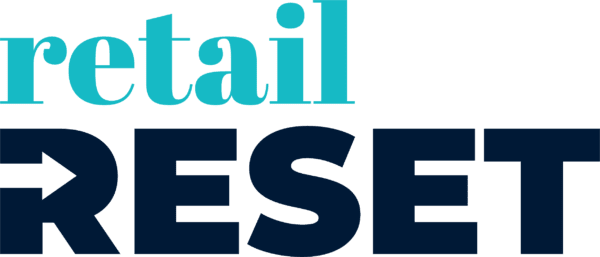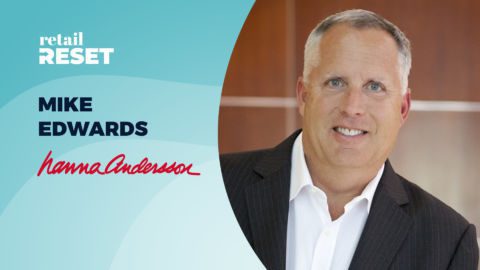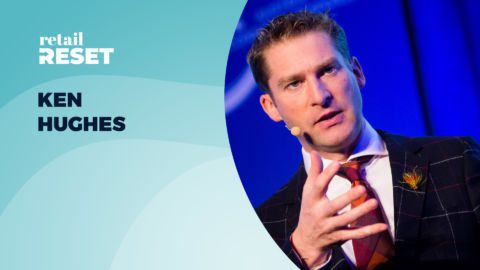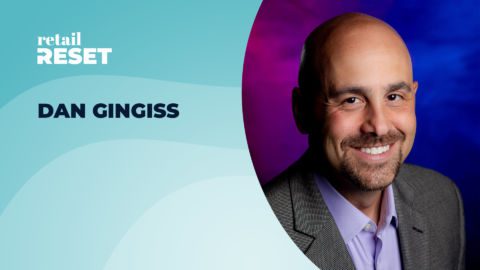In the wake of COVID-19, leadership teams have responded and adapted in different ways. While specific priorities and action items vary based on industry, target customer and business model, some underlying leadership qualities are proving highly valuable.
As partner and organizational expert at Kearney, John Kurtz has been studying both the actions leaders take as well as how their personality attributes trickle down to impact the values and culture of the business. In an interview with Retail TouchPoints, Kurtz shared the leadership traits that count most today:
- Honesty and directness;
- Empathy;
- Optimism; and
- Future orientation.
“Great leaders have always demonstrated these qualities, but now they’re needed in mega doses,” Kurtz explained. “Empathy in particular is becoming more central as C-level executives try to maintain customer trust, employee engagement and shareholder value — even as their businesses struggle. It’s certain that “employees and other stakeholders, such as suppliers, business partners and direct customers, are extremely attuned to empathy, or the absence of it,” Kurtz added. “They have a radar for that and can spot it a mile away.”
Moving forward, executives must tap that empathy to build their internal communities and develop a collective vision for the future. The current crisis has accelerated many industry trends (think the rapid shift to digital), so leadership must get everyone on board to act on a unified vision.
“Leaders genuinely need to articulate a vision for the future,” Kurtz said. “It’s not about where we are now. It’s about where we can be and how we’re going to get there with everyone’s help and support. What COVID-19 has done is to intensify the need for reinvention and made it clear that there’s now no other choice.”
Kurtz discusses takeaways from his research, as well as ways retailers can take learnings from the current situation to shape the way they redefine their business and culture.
RTP: How are consumers responding to executive leaders that are expressing empathy, humanity and appreciation in their everyday actions? Are these traits now influencing brand perception and loyalty?
John Kurtz: Consumers generally are highly receptive to expressions of humanity and appreciation. They are even willing to tolerate a certain amount of clumsiness in its expression. However, where there’s a blatant mismatch in what leaders say and what they do, it can lead to very strong negative reactions — amplified perhaps five-fold over what it would have been without the crisis. An example of a mismatch would be Kimbal Reeve Musk, Elon Musk’s brother, first calling his restaurant employees “family” and then leaving them out in the cold. By contrast, Tim Boyle, CEO of Columbia Sportswear, reduced his salary from $3.3 million to $10,000 to support his 3,500 retail employees who had been affected by his company’s store closures.
Advertisement
RTP: What are leaders currently not prioritizing that you believe is a missed opportunity?
Kurtz: Leaders [today] aren’t doing enough imagining and forming teams to think beyond the horizon of the crisis — say, three years out. Yet doing this is important for several crucial reasons. First, it sends an extraordinary signal to the company’s employees and customers — that however difficult things are now, the company will be a survivor and has a bright future. Doing so also builds skills in planning for the future among its key people. In a simpler sense, it involves more people in different ways in the company’s response to the crisis.
In terms of quickly innovating to the current circumstances, Sam’s Club was quick to offer special shopping hours and concierge service for seniors and those at risk. Zappos rapidly rolled out its Customer Service for Anything hotline, using its expertise in customer service to help a New York health system locate 300 pulse oximeters.
RTP: What should retailers be thinking about as they put their planning hats on? Who should be involved in the planning process, and what does that process look like?
Kurtz: For the most part, companies have tended to involve a very small number of people in their initial task forces. While this was efficient in the first two weeks of nearly round-the-clock emergency meetings, many companies still have not moved substantively beyond that. To reimagine the future, far more people should be involved, and now is the perfect time to work on war-gaming capabilities and scenario planning. These are ways of dealing directly with uncertainty, and giving key executives a firmer feeling of confidence in their ability to control, predict and deal with a diverse set of outcomes. In times of uncertainty, there is a strong tendency — and we see that with the current crisis — to figuratively throw up one’s hands and wait for clarity. But that attitude will only earn them missed opportunities.
RTP: In what areas do you believe executive leadership, specifically CEOs, are struggling most?
Kurtz: Even with very sophisticated companies, across the several industries in my purview, I see many CEOs are far behind where they should be in imagining and planning for the opportunities that will come from the crisis. Whether that’s M&A activity or launching new products or re-envisioning the customer experience, it’s already clear what trends will be upon us.
Two CEOs said to me in the past couple of weeks, ‘Debt markets are still disrupted; we’ll wait and see before looking too far out.’ My reaction was, this is a sure way to not get back on a fast track to recovery. Similarly, nearly all companies immediately involved all their most talented executives in task forces to deal with the current disruptions from the COVID-19 crisis — HR actions, supply chain initiatives, demand analysis. But very few have pivoted toward putting talented people on teams to think ahead, to identify future opportunities and to position themselves to capture them. The companies that are doing this will end up far ahead and will have also energized their key people through the process. One great example of rapidly reacting to the disruption, under the leadership of John Donohoe, was Nike’s bounce back in China as it hyper-accelerated its online game.
RTP: Employees obviously play a crucial role in helping the CEO’s vision come to life. How can retail leaders ensure their plans garner a positive response and get everyone excited to act?
Kurtz: Leaders must consciously balance their communications to be focused ahead and not just on the here and now. We have always been inspired by leaders who seem to see further into the future than we can on our own, but during a crisis this is especially important.
A positive and engaged culture is highly correlated with a sense of purpose and meaning for employees. Companies whose cultures already have that due to the crucial role CEOs and other leaders have played during the crisis are way ahead. More powerful still is the advantage of companies whose culture runs deep — whose underlying ethos has high resiliency owing to a sense of collective mission.
Companies whose products or services are somehow feeling less relevant in the crisis — think of a luxury watch manufacturer, for example — should find ways to recast their relevance. For example, the luxury watchmaker can re-emphasize the importance of control and precision in uncertain times, or latch onto the fact that they have a product that lasts for a hundred years. These need not be marketing messages; they can be ways of galvanizing the internal sense of purpose and meaning for their teams.
RTP: What can they do to pivot the direction of the business, especially if they have values that they wish to instill within the brand?
Kurtz: All the tools and skills that help leaders pivot in normal times play an even more outsized role during times of crisis. I’ve seen some very creative local examples during this pandemic. A local restaurant that, during the first weeks of shifting to delivery, sent along a roll of toilet paper with every order. In normal times, this would seem to be absolute dissonance — the association of toilet paper with food normally makes one shudder. But in this case, it was an unusual gesture that showed caring.
Trader Joe’s made an important decision early on to go further than other chains in reducing the number of customers in their stores. While safety was certainly important, this was largely implemented because CEO Dan Bane, his team and local managers recognized the high stress that shoppers felt in stores. They devised plans to reduce the numbers of shoppers beyond the level of safety, to the level where the shopping experience itself would be surprisingly stress-free. This will have a lasting impact on how their shoppers perceive the brand.
RTP: What are the leading reasons why decision-making may fall flat or may be poorly perceived by the workforce and even the general public? What actions can leaders take to course correct?
Kurtz: The top reasons why decision-making falls flat is because the CEO is not in tune with employees, customers and other stakeholders. Often that’s because she or he is taking too much on without having a systematic way of listening. Many of us have taken various diagnostic personality tests that show us what happens to our proclivities under stress. In most people, stress brings exaggerated expressions of our traits. A crisis like this means that many leaders will move further to a ‘control-everything-oneself’ mentality, and will stop looking outward or will be overly reliant upon a small circle of decision-makers. This is an important time to be talking even more readily with customers and diverse groups of employees, and to be double-checking one’s instincts. In a crisis, we all too easily extrapolate from our own feelings to the feelings of others.
RTP: How do you believe the pandemic will shift what it means to be a good leader, if at all?
Kurtz: We’ll see the leaders who had the most foresight thrive, while others may cost their companies years of progress. No one has a crystal ball, but I have a clear sense that the companies that prioritize values and have found ways to increase loyalty from their customers and their people will come out on top.
Leaders who were mired in fear and doubt or who failed to look ahead will be among the first to lose their jobs. It is still unclear how much the pandemic itself will permanently shift the sense of leadership and what’s important. But it is certainly clear that individual leaders are reacting very differently, and we’ve seen many cases of leaders rising.














